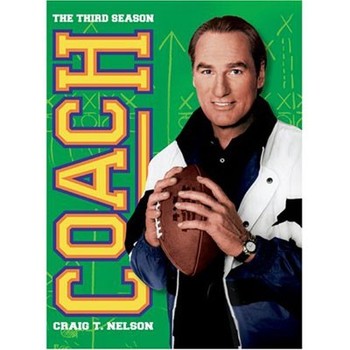 |
| Really, this was a terrible show. It lasted for nine seasons. |
Over at Statistical Modeling, Causal Inference, and Social Science, Andrew Gelman is more skeptical. He writes:
But I don’t know if this could work for statisticians (or for physicists or computer programmers or various other technical jobs). I’m sure I could benefit from advice—if I had Don Rubin or Xiao-Li Meng or Jennifer Hill on a string to answer my statistics questions at all time, I’d be in much better shape (this is not possible so I have partitioned off areas in my brain to simulate Rubin and Meng and Hill—it’s not as good as the real thing but it actually can be helpful, sort of like those old Windows emulators they used to have on Macs)—but that sort of advice and feedback seems a bit different from coaching, somehow.
Gelman misses this one. He asks whether Gawande is "getting coached on his reporting and writing," and sets this up as a test about whether Gawande is really serious about getting feedback on his "core competency"(to add to his list of business jargon).
Let me assure that the answer is yes.
Gawande is a professional writer, but the principal difference between professional and amateur writers is that some institution has chosen to publish Gawande. That entails not merely giving him a check for the essays he writes but also imposing stringent editorial standards. And there are few magazines where that editorial intrusion is more rigorous or searching than The New Yorker.
Gelman might object that this is not quite "coaching," in the sense that it is an essential part of the process of being a magazine writer. But, actually, it is Gawande's volitional coaching--privately engaging the services of a senior surgeon to give him tips--that is the deviation from the essence of coaching. Players don't get to choose their coach, but their coach does get to choose who plays. The incentive structure is no less clear in journalism. The principal difference between the coaching he receives as a surgeon and that he receives as a writer is that in only the latter is it required. (Oddly, the field in which the professional is subject to review is not the one where his mistakes could kill.)
That underscores the difference between volitional and institutional coaching. Peers cannot criticize their peers too strongly without incurring too many costs. But a coach hired by a client who wants searching criticism can, at least in principle, say things that peers cannot. And because their relationship is based on a fee-for-service model, the coach-client relationship is, again in principle, easier to maintain than the peer-to-peer relationship. After all, you can't fire your peers, but you can fire your coach.
No comments:
Post a Comment